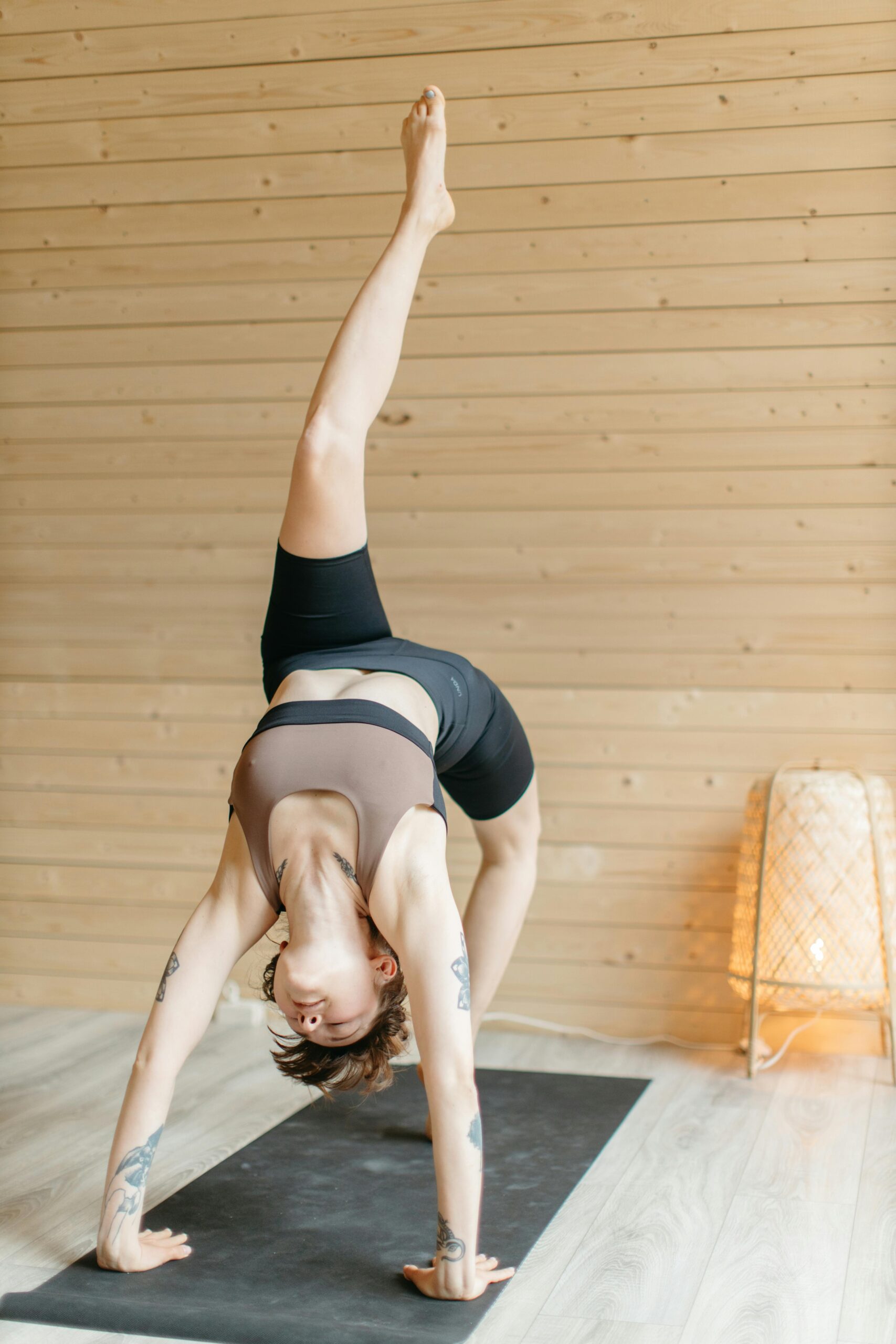Health and Fitness: Understanding the Connection
In today’s fast world, staying healthy is key. Health and fitness are closely tied, forming a powerful bond. This bond helps us live a better, more vibrant life.
At the heart of this bond is the idea that health and fitness are one. Physical fitness boosts our health, and good health lets us enjoy physical activities fully. This shows how deeply connected they are.
This connection is vital, touching on physical, mental, emotional, and social health. By valuing this bond, we open doors to personal growth and a better life. It’s a journey to fulfillment and happiness.
Key Takeaways
- Health and fitness are interconnected, with each aspect influencing the other.
- Maintaining physical fitness supports overall health and well-being.
- Understanding the relationship between health and fitness is crucial for a holistic approach to wellness.
- Incorporating both physical activity and healthy habits can lead to a more fulfilling and vibrant lifestyle.
- Recognizing the importance of the health-fitness connection can unlock new opportunities for personal growth and self-improvement.
The Significance of Physical Fitness
Physical fitness is key to good health and happiness. Regular exercise boosts heart health, strengthens muscles, and improves flexibility. It also helps manage weight and boosts mood.
Benefits of Regular Exercise
Regular exercise offers many benefits, including:
- Improved heart health and lower risk of cardiovascular disease
- Increased muscle strength and endurance
- Better weight management and control
- Enhanced mental well-being and reduced stress levels
- Improved sleep quality and higher energy levels
Overcoming Barriers to Fitness
Many people find it hard to exercise regularly. Common barriers to fitness include lack of time, motivation, or access to gyms. But, with a bit of creativity and determination, these obstacles can be overcome:
- Start small: even a 10-minute walk or a few bodyweight exercises can make a difference.
- Find activities you enjoy: dance, swim, or try a new sport to make fitness more fun.
- Enlist friends or family: working out with loved ones can provide support and accountability.
- Explore online resources: numerous free workout videos and apps are available to guide your fitness journey.
By understanding the value of physical fitness and finding ways to get past common barriers, people can enjoy the many benefits of exercise. This leads to a healthier, more balanced life.
Nutrition: The Foundation of Good Health
Keeping healthy isn’t just about exercise. It’s also about what we eat. Good healthy nutrition is key to health, helping our bodies and minds in many ways. The role of nutrition in health is huge, as a balanced diet full of nutrients is vital for feeling good.
A diet that’s balanced gives us the right mix of carbs, proteins, fats, vitamins, and minerals. These nutrients are crucial for our bodies to work right. They help with energy, keeping us healthy, fixing tissues, and supporting our brains.
- Carbohydrates: Give us energy for moving and thinking.
- Proteins: Help our bodies grow, repair, and make important chemicals.
- Fats: Help us absorb vitamins, keep cells healthy, and make hormones.
Also, a good diet includes lots of micronutrients like vitamins and minerals. Vitamin C boosts our immune system. Calcium and vitamin D are key for strong bones and teeth.
“Proper nutrition is not just about calories; it’s about nourishing the body with the right balance of nutrients to support overall health and well-being.”
By choosing healthy nutrition and a balanced diet, we can reach our best health. Eating foods rich in nutrients, like fruits, veggies, whole grains, lean proteins, and healthy fats, helps our bodies work at their best.
The role of nutrition in health is clear, and making healthy food choices is key to a better life. Understanding the importance of a balanced diet helps us make smart food choices. This sets us up for a life full of health and happiness.
The Mind-Body Connection
The mind-body connection is a deep and complex relationship that greatly affects our health and fitness. It shows how our mental state, feelings, and stress levels can change our physical health. By understanding and using this connection, we can find strong ways to improve our mental and physical health.
Stress Management Techniques
Stress can upset the mind-body connection. It can cause many physical and mental health problems, like high blood pressure and anxiety. But, there are many good ways to manage stress and keep this balance:
- Mindfulness and meditation: Regular mindfulness and meditation can calm the mind, lower stress, and boost well-being.
- Deep breathing exercises: Deep, controlled breathing can relax the body and mind, reducing stress.
- Physical activity: Doing regular exercise, like yoga, can help reduce stress and improve both mental and physical health.
- Cognitive-behavioral therapy (CBT): Working with a mental health expert to learn healthy coping strategies can manage stress and improve mental health.
By adding these stress management techniques to our daily lives, we can strengthen the mind-body connection. This leads to better mental health and fitness.
“The greatest weapon against stress is our ability to choose one thought over another.” – William James
Understanding the mind-body connection and using good stress management strategies is a key step to overall health and well-being. By focusing on this relationship, we can reach our full mental and physical potential.
How Health and Fitness are Related
The connection between health and fitness is complex and deep. These two are closely interconnected, affecting each other in big ways. Knowing how health and fitness are linked is key for a balanced life.
Physical activity is at the heart of this bond. Exercise boosts fitness and helps prevent diseases. It lowers the risk of heart disease, diabetes, and some cancers. Exercise also boosts mental health by reducing stress and improving mood.
Nutrition is also vital in the health and fitness relationship. Eating well gives the body what it needs to work best. Good nutrition helps with muscle repair, energy, and keeping a healthy weight. These are all important for being physically fit.
In the end, health and fitness are deeply connected. By understanding this, we can take steps to improve our well-being. This leads to a more balanced and rewarding life.
| Factor | Impact on Health | Impact on Fitness |
| Physical Activity | Reduces risk of chronic diseases, improves mental health | Enhances cardiovascular fitness, muscular strength, and flexibility |
| Nutrition | Provides essential nutrients for optimal body function | Supports muscle recovery, energy levels, and healthy weight maintenance |
| Stress Management | Reduces the negative impact of stress on physical and mental health | Enables better focus, energy, and recovery during physical activities |
Developing a Balanced Lifestyle
Achieving a balanced lifestyle means combining exercise and healthy eating. This is the secret to lasting health and fitness. By taking a holistic approach, you can fully enjoy the benefits of being active and eating right. This leads to a more vibrant and full of life existence.
Integrating Exercise and Healthy Eating
It’s crucial to mix exercise and healthy eating for a balanced life. Regular workouts keep you healthy, boost your mood, and lower stress. A diet full of whole foods, lean proteins, and fresh veggies gives your body the energy it needs.
To find this balance, try these tips:
- Make sure your workout routine includes strength training, cardio, and flexibility exercises.
- Focus on eating whole, unprocessed foods like fruits, veggies, whole grains, and lean proteins.
- Drink plenty of water all day to help your body function well and perform better during workouts.
- Get enough sleep to help your body recover and support your fitness and healthy eating efforts.
By blending exercise and healthy eating, you can live a balanced life that supports your health and fitness goals.
| Benefits of a Balanced Lifestyle | Exercise | Healthy Eating |
| Improved cardiovascular health | ✓ | ✓ |
| Increased energy and vitality | ✓ | ✓ |
| Enhanced mood and stress management | ✓ | ✓ |
| Healthy weight management | ✓ | ✓ |
| Improved sleep quality | ✓ | ✓ |
“The key to a balanced lifestyle is finding the right harmony between physical activity and nutritious eating. It’s not about perfection, but rather a journey of continuous improvement and self-care.”
Age-Specific Fitness Considerations
Keeping fit is key at every stage of life. But, what we need changes a lot as we age. It’s vital to create workouts that fit each life stage’s unique needs.
Our bodies change a lot as we get older. It’s important to adjust our exercise plans. Whether we’re young and full of energy or older and wiser, each stage has its own age-appropriate fitness challenges and chances.
Fitness Needs Across the Lifespan
- Young adulthood: Focus on building strength, endurance, and flexibility to support an active lifestyle.
- Middle age: Emphasize maintaining muscle mass, joint flexibility, and cardiovascular health to combat the effects of aging.
- Retirement years: Prioritize low-impact exercises that enhance balance, stability, and mobility to prevent falls and maintain independence.
By adapting fitness routines to meet the unique fitness needs across the lifespan, we can keep our health and wellness in check, no matter our age. This approach helps us stay active and independent as we age.
| Age Group | Fitness Priorities | Recommended Activities |
| Young Adults | Muscle Building, Endurance, Flexibility | Strength Training, High-Intensity Interval Training, Yoga |
| Middle-Aged Adults | Muscle Maintenance, Cardiovascular Health, Joint Mobility | Resistance Training, Brisk Walking, Swimming |
| Older Adults | Balance, Stability, Low-Impact Exercises | Tai Chi, Pilates, Aquatic Exercises |
Understanding the unique age-appropriate fitness needs and adjusting our workouts helps us stay healthy and active. This way, we can enjoy active, fulfilling, and independent lives at every age.
The Role of Preventive Care
Preventive healthcare is key to keeping you healthy for a long time. Regular check-ups and screenings help find health problems early. This way, you can act fast and avoid serious illnesses.
Regular Check-ups and Screenings
It’s important to see your doctor regularly. These visits help keep an eye on your health. You can talk about any worries, look over your medical history, and get screenings based on your age, gender, and health risks.
- Preventive screenings, like blood tests and cancer checks, find problems before they get worse.
- Getting immunizations and vaccines boosts your immune system and keeps you safe from diseases.
- Regular physical exams let your doctor spot any changes or issues early.
By focusing on preventive care, you can stay healthy, find problems early, and lower the chance of serious conditions. This not only keeps you feeling good but also saves you from expensive and invasive treatments later.
“An ounce of prevention is worth a pound of cure.” – Benjamin Franklin
Adding preventive care to your life is a smart choice for your health. By making regular check-ups and screenings a priority, you take charge of your health. This leads to a healthier, more vibrant future.
Overcoming Challenges and Setbacks
Starting a health and fitness journey is tough. You might face overcoming fitness challenges like injuries or hitting a plateau. But, with the right mindset and strategies, you can beat these obstacles and keep your motivation up.
Setbacks are common. They could be an illness, a busy schedule, or losing motivation. The important thing is to stay resilient and positive. Acknowledge the setback, but don’t let it stop you. Instead, think about how you can get back on track.
- Identify the root cause of the setback and address it head-on.
- Adjust your plan, but don’t abandon it entirely. Adapt your approach to fit your current circumstances.
- Celebrate small wins and milestones along the way to stay motivated.
- Surround yourself with a supportive network of friends, family, or a fitness community to help you stay accountable.
It’s easy to want to give up when progress is slow. But, keeping motivation is key. Remember, lasting change takes time and effort. Celebrate your successes, no matter how small, and keep your eyes on the long-term benefits.
“The greatest glory in living lies not in never falling, but in rising every time we fall.” – Nelson Mandela
By being resilient, adapting your plan, and staying focused on your goals, you can conquer challenges and setbacks. Keep going, and you’ll reach your wellness goals.
Conclusion
In this article, we’ve looked at how health and fitness affect our well-being. We’ve seen how regular exercise and good nutrition are key. They help us live a balanced life.
Physical fitness does more than make us look good. It boosts our energy, heart health, and immune system. Mind-body connection is also crucial. It helps us manage stress and stay positive.
Health and fitness go hand in hand. They support each other for a better life. By making lasting lifestyle changes, we can live healthier and happier. We become stronger and ready for life’s ups and downs.
FAQ
What is the relationship between health and fitness?
Health and fitness are closely connected. Keeping both physical and mental health in check is key to feeling well and living long. Exercise and a healthy diet boost heart health, muscle strength, and mental state.
What are the benefits of regular exercise?
Exercise has many benefits. It improves heart health, strengthens muscles, helps manage weight, and boosts mental health. It also helps overcome excuses like not having time or feeling unmotivated.
How important is nutrition for good health?
Nutrition is vital for health. A diet full of essential nutrients supports physical and mental health. It prevents chronic diseases, increases energy, and promotes wellness.
What is the mind-body connection, and how does it affect health and fitness?
The mind-body connection links our mental and physical health. Stress affects both, so managing it is key to staying healthy. It helps keep a balance between mind and body.
How can I develop a balanced lifestyle that integrates exercise and healthy eating?
A balanced lifestyle combines exercise and healthy eating. It’s about making these habits part of your daily life. This supports your overall well-being.
How do fitness needs differ across different age groups?
Fitness needs change with age. It’s important to adjust workouts and approaches for each life stage. This ensures health and fitness are achievable at any age.
Why is preventive care important for health and fitness?
Preventive care, like regular check-ups, is crucial. It helps catch health issues early. This prevents chronic diseases and supports long-term health.
How can I overcome challenges and setbacks in my health and fitness journey?
Dealing with challenges is part of the journey. Stay motivated, adapt your routine, and be resilient. These strategies help you keep moving forward towards your wellness goals.





